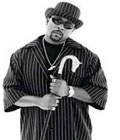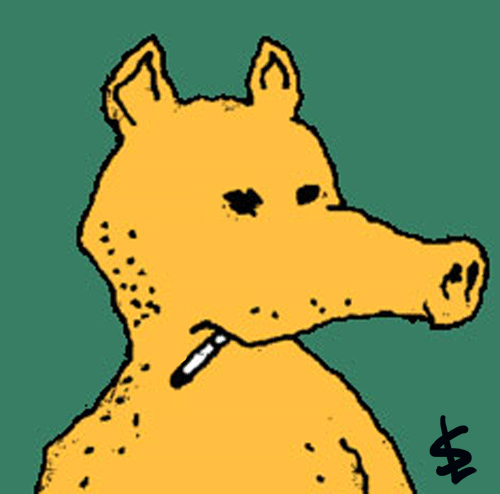http://i49.tinypic.com/2wc1qgx.jpg
dude in the back looks an angry gay dude that's still mad about Marshall Mathers LP
Whats the story behind this pic?
15 posts
• Page 1 of 1
Re: Whats the story behind this pic?
How are we supposed to know what is the story behind the pic lol
-

Shadizz - Renegade

- Posts: 2154
- Joined: Jul 22nd, '08, 20:05
- Location: France
- Gender: Male
Re: Whats the story behind this pic?
LOL at his portable CD player. I have not seen one of those in years.
-

The Shady Virus - Trailer Trash

- Posts: 345
- Joined: Jun 22nd, '10, 22:19
- Location: Raleighwood
- Gender: Male
Re: Whats the story behind this pic?
His face tells me that he thinks: "What the fuck- this small white kid is raising his hand and the world goes nuts? He carries a cd player, he can't even afford an iPod why do people care about him and why is he with such an entourage?!"
August 22 2013 - from Berlin to Paris, 400€ spent just for Eminem. IT WAS WORTH EVERY SINGLE CENT!
-

kiki - Soldier

- Posts: 952
- Joined: Sep 4th, '10, 18:53
- Gender: Female
Re: Whats the story behind this pic?
The Shady Virus wrote:LOL at his portable CD player. I have not seen one of those in years.
He`s old school

-

BILI - Pill Popper

- Posts: 9998
- Joined: Mar 26th, '09, 16:05
- Location: Croatia
- Gender: Male
Re: Whats the story behind this pic?
BILI wrote:The Shady Virus wrote:LOL at his portable CD player. I have not seen one of those in years.
He`s old school
the man doesnt know how to work a computer. you think he's gonna be able to install the I pod program and upload songs to it? lol
I wanted an album so rugged nobody could touch it
Spend a million a track and went over my budget
Now how in the fuck am I supposed to get out of debt?
I can't rap anymore - I just murdered the alphabet
Spend a million a track and went over my budget
Now how in the fuck am I supposed to get out of debt?
I can't rap anymore - I just murdered the alphabet
- justbb09
- Trailer Trash

- Posts: 372
- Joined: Apr 24th, '07, 04:56
Re: Whats the story behind this pic?
justbb09 wrote:BILI wrote:The Shady Virus wrote:LOL at his portable CD player. I have not seen one of those in years.
He`s old school
the man doesnt know how to work a computer. you think he's gonna be able to install the I pod program and upload songs to it? lol
I saw pics of him running with ipod from like 2006

-

Alaine - Band Leader

- Posts: 5635
- Joined: Sep 18th, '09, 21:31
- Gender: Female
Re: Whats the story behind this pic?
The story? Really?

^Thanks Maybe.
Spyder wrote:The silent king of spam.
Killa wrote:Me & dR3 represent the future bitch!!!
Killa wrote:dR3 stay winning...
-

dR3 - Django

- Posts: 20111
- Joined: Oct 4th, '09, 00:21
- Location: Macedonia
- Gender: Male
Re: Whats the story behind this pic?
 haha still mad about the MMLP
haha still mad about the MMLP-

Fa-Q - Pill Popper

- Posts: 8404
- Joined: Dec 20th, '08, 21:15
Re: Whats the story behind this pic?
Probably checking out his ass like a faggot he is.
-

Weather Man - Soldier

- Posts: 999
- Joined: Aug 17th, '10, 18:22
- Gender: Male
Re: Whats the story behind this pic?
The guy clearly jizzed his pants..
shiiiit I would probably do the same if I saw Em walking on the street.
shiiiit I would probably do the same if I saw Em walking on the street.

-

M+M - Trailer Trash

- Posts: 369
- Joined: Aug 11th, '10, 14:01
- Location: Slum
- Gender: Male
Re: Whats the story behind this pic?
As the story opens, protagonist Dagny Taggart, executive of Taggart Transcontinental, a giant railroad company originally pioneered by her grandfather, attempts to keep the company alive during difficult economic times marked by collectivism and statism. While Dagny runs the company from behind the scenes, her brother, James Taggart, the railroad's President, is peripherally aware of the company's troubles but will not make any difficult choices, preferring to avoid responsibility for any actions while watching his company go under. As this unfolds, Dagny is disappointed to discover that Francisco d'Anconia, a true genius and her only childhood friend, first love, and king of the copper industry, appears to have become a worthless playboy who is destroying his family's international copper company, which has made him into one of the richest and most powerful men in the world.
She meets Hank Rearden, a self-made steel magnate of great integrity, who has recently developed a metal alloy called Rearden Metal, now the strongest and most reliable metal in the world. Hank chooses to keep the instructions to its creation a secret, sparking jealousy and uproar among competitors. Hank's career is hindered by his feelings of obligation toward his manipulative wife, mother, and ungrateful younger brother, who show no appreciation for everything he provides for them. Dagny also becomes acquainted with Wesley Mouch, a Washington lobbyist who leads the government's efforts in controlling all commerce and enterprise, intentionally destroying the common man's opportunity to build a largely successful, free market business. The reader also becomes acquainted with Ellis Wyatt, the sole founder and supervisor of the successful enterprise Wyatt Oil. He is a young, self possessed, hard working gentleman - one of the few men still loyal to Dagny and Hank's efforts in pushing for a system of business free of government meddling and control.
While economic conditions worsen and government agencies continue to enforce their control on successful businesses, the naive, yet weary mass of citizens are often heard reciting the new, popular street phrase, "Who is John Galt?" This sarcastic phrase is given in response to what tend to be sincere questions often imploring heavy subjects, wherein the individual can find no answer. It sarcastically means, "Don't ask important questions, because we don't have answers," or more broadly, "What's the point?" or "Why bother?"
As the reader proceeds, Dagny begins to notice the nation's brightest innovators and business leaders abruptly disappearing, one by one, under mysterious circumstances, all leaving their top industrial businesses to certain failure. The most recent of these leaders to have vanished is Dagny's friend Ellis Wyatt, who, like the others, has suddenly dissolved into thin air, void of a single warning, leaving nothing behind except an empty office and his most successful oil well now spewing petroleum and fire high into the air (along with a note which mocked his destroyers efforts). Each of these men prove to be absent despite a thorough search put on by the ever anxious politicians, who've now found themselves trapped within a government that has been "left-to-dry," by its leaders in business - utterly helpless without them.
In a romantic subplot, Dagny and Hank fall deeply in love for each other. Rand refers to their love as a purer kind of love than the one that most men and women engage in. These two people have a purpose in life, and they see in each other a similar soul to their own. In the universe of the novel, men with purpose are a rare sight. Hank and Dagny go on a holiday drive across many states of the USA. They discover, amongst the ruins of an abandoned factory, an incomplete motor that transforms atmospheric static electricity into kinetic electricity. Deeply moved by the significance of this motor, which would completely transform the world, Dagny sets out to find the inventor.
In the final section of the novel, Taggart discovers the truth about John Galt, who is leading an organized "strike" against those who use the force of law and moral guilt to confiscate the accomplishments of society's productive members. With the collapse of the nation and its rapacious government all but certain, Galt emerges to reconstruct a society that will celebrate individual achievement and enlightened self-interest, delivering a long speech serving to explain the story's theme philosophy of Objectivism.
She meets Hank Rearden, a self-made steel magnate of great integrity, who has recently developed a metal alloy called Rearden Metal, now the strongest and most reliable metal in the world. Hank chooses to keep the instructions to its creation a secret, sparking jealousy and uproar among competitors. Hank's career is hindered by his feelings of obligation toward his manipulative wife, mother, and ungrateful younger brother, who show no appreciation for everything he provides for them. Dagny also becomes acquainted with Wesley Mouch, a Washington lobbyist who leads the government's efforts in controlling all commerce and enterprise, intentionally destroying the common man's opportunity to build a largely successful, free market business. The reader also becomes acquainted with Ellis Wyatt, the sole founder and supervisor of the successful enterprise Wyatt Oil. He is a young, self possessed, hard working gentleman - one of the few men still loyal to Dagny and Hank's efforts in pushing for a system of business free of government meddling and control.
While economic conditions worsen and government agencies continue to enforce their control on successful businesses, the naive, yet weary mass of citizens are often heard reciting the new, popular street phrase, "Who is John Galt?" This sarcastic phrase is given in response to what tend to be sincere questions often imploring heavy subjects, wherein the individual can find no answer. It sarcastically means, "Don't ask important questions, because we don't have answers," or more broadly, "What's the point?" or "Why bother?"
As the reader proceeds, Dagny begins to notice the nation's brightest innovators and business leaders abruptly disappearing, one by one, under mysterious circumstances, all leaving their top industrial businesses to certain failure. The most recent of these leaders to have vanished is Dagny's friend Ellis Wyatt, who, like the others, has suddenly dissolved into thin air, void of a single warning, leaving nothing behind except an empty office and his most successful oil well now spewing petroleum and fire high into the air (along with a note which mocked his destroyers efforts). Each of these men prove to be absent despite a thorough search put on by the ever anxious politicians, who've now found themselves trapped within a government that has been "left-to-dry," by its leaders in business - utterly helpless without them.
In a romantic subplot, Dagny and Hank fall deeply in love for each other. Rand refers to their love as a purer kind of love than the one that most men and women engage in. These two people have a purpose in life, and they see in each other a similar soul to their own. In the universe of the novel, men with purpose are a rare sight. Hank and Dagny go on a holiday drive across many states of the USA. They discover, amongst the ruins of an abandoned factory, an incomplete motor that transforms atmospheric static electricity into kinetic electricity. Deeply moved by the significance of this motor, which would completely transform the world, Dagny sets out to find the inventor.
In the final section of the novel, Taggart discovers the truth about John Galt, who is leading an organized "strike" against those who use the force of law and moral guilt to confiscate the accomplishments of society's productive members. With the collapse of the nation and its rapacious government all but certain, Galt emerges to reconstruct a society that will celebrate individual achievement and enlightened self-interest, delivering a long speech serving to explain the story's theme philosophy of Objectivism.

-

electroencephalogram - Soldier

- Posts: 1059
- Joined: Jun 10th, '09, 20:43
Re: Whats the story behind this pic?
This made me lol
You think your personal attacks make up for what you lack?
-

classthe_king - Addict

- Posts: 14163
- Joined: Feb 12th, '09, 02:30
- Location: Ohio
- Gender: Male
Re: Whats the story behind this pic?
Lmfao. Yea what the other dude said.
-

ClassiK. - Trailer Trash

- Posts: 275
- Joined: Aug 27th, '09, 15:11
- Location: ̏̏̏̏̏̏̏̏̏̏̏̏̏̏̏̏̏̏̏̏̏̏̏̏̏̏̏̏̏̏̏̏̏ ̏̏̏̏
- Gender: Male
Re: Whats the story behind this pic?
A thread about this here
[Rollefsen] - SajN retired, bitch got old, unlike Sams "ladies".




-

Sam. - Bad Influence

- Posts: 16630
- Joined: Jun 7th, '10, 11:10
- Location: India
- Gender: Male
15 posts
• Page 1 of 1
Who is online
Users browsing this forum: No registered users
